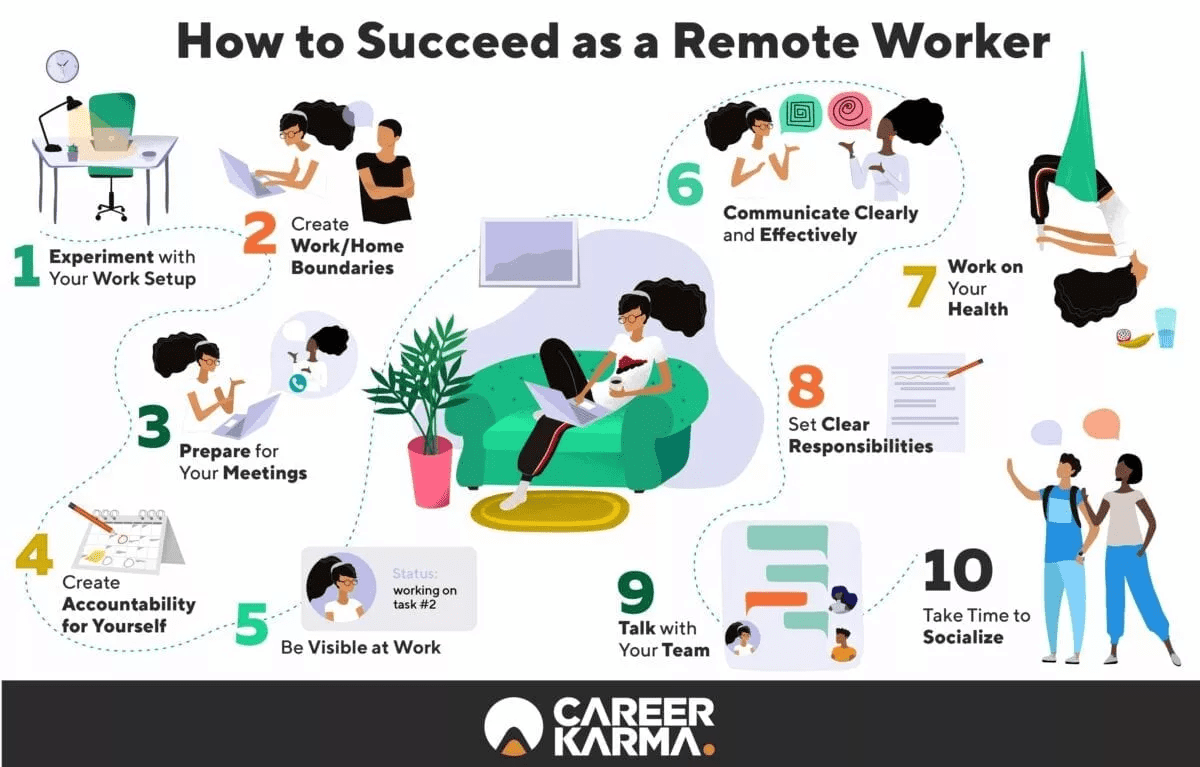Remote work is here to stay, and it’s not just because of the coronavirus pandemic.
As a form of work that promises significant reductions in overhead costs and increases in productivity, remote work is incredibly suited to a variety of companies who want to lead in the future.
And in this article, we’re going to show you 5 culture tips for hiring remote workers.
Let’s take a look!
- Understand Your Company’s Remote Position
Before you start hiring remote workers, it’s important to understand your company’s unique position.
Some companies need a mix of on-site and remote workers.
Others can work with a completely remote workforce.
After you’ve identified the scenario for your company, you’ll need to think about the kind of culture you want to enforce.
If you have a mix of on-site and remote workers, you have to be aware that remote workers won’t be mingling with their on-site colleagues. The question at that point becomes: how are you going to help them connect?
Your position will define your culture, which is bound to change as soon as you add remote workers into the mix.
2. How to Hire Remote Workers for Hybrid Teams
If you’re hiring remote workers who will be working with on-site employees, you need to establish clear guidelines regarding:
- Communication and socialization
- Standards
- Visibility
One of the most common problems that occur within hybrid teams is on-site workers feeling like remote workers are slacking off.
In turn, this can create workplace conflict, and harm your culture.
In order to mitigate that, your culture should first emphasize communication and trust.
Make clear plans on how and when your remote workers will come into the office. It’s good to organize meet-ups every once in a while.
If that’s not a possibility (for example, during the coronavirus crisis), you should prepare digital team building activities.
Secondly, you need to track performance.
You should:
- Provide guidelines on how remote workers should track their work hours
- Define meeting times
- Define documentation policies
- Identify the most useful tools for cross-departmental collaboration
Establishing guidelines as early as possible will help you create a great hybrid/remote work culture.
Then, simply hire remote workers who can adapt to your process.
Help your remote workers establish a work/life balance
Source: CareerKarma
3. How to Hire Remote Workers for Fully-Remote Teams
If you’re hiring workers for fully-remote teams, you probably have your own remote culture already.
Before hiring anyone, make sure you identify all the processes:
- How does your remote team communicate (formally and casually)?
- How do you share knowledge?
- How do you encourage teamwork?
- What soft skills are necessary for your remote team?
Then, when you start hiring, you should find people who fit the culture.
For example, if your team is incredibly self-motivated, you should find similar individuals. If your team likes chatting informally to their colleagues (for example, in a casual Slack channel), you should find people who aren’t just results-oriented, but process-oriented as well.
Normally, remote workers have great self-discipline and time management skills.
This is a culture must, especially if you have flexible hours.
If your potential hire isn’t self-disciplined, the rest of the team will suffer, and it’ll cause numerous conflicts.
4. Implement a Mentoring System
The best way to help your new hires adapt to your system is to assign them a mentor.
Try to select the most communicative person on your team for the task.
They should also be well-acquainted with your remote culture, and have a good grasp of the processes.
The mentor can then:
- Show the new hire the ropes
- Help them participate in team-building activities
- Be the new hire’s go-to person for any questions related to the company
If you decide to hire at scale, you could even have a designated mentor and reward them accordingly.
5. A Motivational Culture Is a Must for Remote Teams
Remote teams don’t have naturally high competition levels. And since working from home can be pretty isolating, it’s important to create a motivational culture.
Normally, managers think bonuses are enough, but they’re not sustainable.
Gamification, on the other hand, is.
What Is Gamification?
Gamification allows you to engage your remote workers, and show them that they’re part of the team, no matter where in the world they are.
Gamification also creates a culture of transparency.
With Spinify, you can give points to team members for completing their tasks and achieving goals.
There’s no confusion about who’s doing what.
At the same time, Spinify’s gamified dashboard will allow your team members to compete against one another or form teams, bringing an extra dose of entertainment to regular workdays.
It’ll be just like working in the office, without the long commute!








